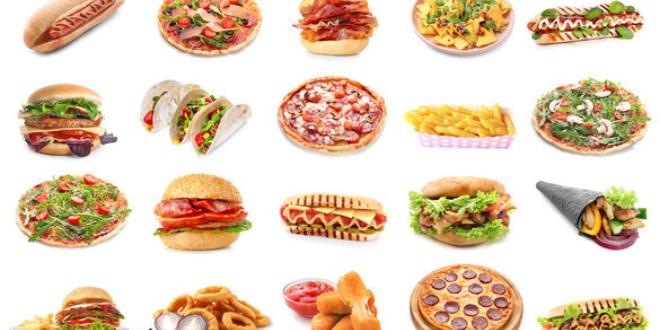Starting next April 1, California’s fast-food industry will start a new era.
On that date, fast-food employees will be paid a minimum of $20 an hour as mandated by Assembly Bill 1228, which Gov. Gavin Newson, signed last month.
That’s up from an average wage of $16.21 in 2022, a 23.3 percent increase.
California’s 500,000-plus fast-food workers have spent years fighting for higher wages and better working conditions, according to Newsom.
“California is committed to ensuring that the men and women who have helped build our world-class economy are able to share in the state’s prosperity,” said Newsom, who signed the bill into law Sept. 28 in Los Angeles while surrounded by jubilant fast food workers, labor leaders, and government officials.
The state’s current minimum wage for all workers is $15.50 per hour, more than twice the federal minimum wage of $7.25 per hour.
California’s fast-food industry is one of the state’s fastest-growing low-paying sectors, according to the Service Employees International Union, which represents nearly two million workers in North America in food service, property service, and health care, according to a fact sheet provided by the SEIU.
Fast-food workers in California are paid $3 less per hour than hourly workers in similar sectors, are more than twice as likely to live in poverty, and have a better chance of receiving public assistance.
Eighty-five percent reported experiencing wage theft while working in fast food, and one in 17 homeless people in California are fast-food workers, according to the union.
AB-1228, which was sponsored by Assemblyman Chris Holden (D-Pasadena), does more than guarantee workers at fast-food restaurants – defined as “limited-service” operations with more than 60 locations nationwide that share a common brand – be paid $20 an hour.
It establishes a nine-member Fast Food Council made up of fast-food industry representatives, restaurant owners, franchisees advocates for fast food restaurant employees, and a neutral chairperson.
From 2025 to 2029, the council may adjust the hourly minimum wage each year, and recommend changes to workplace standards. Any recommendations will be reviewed according to the provisions of the California Administrative Procedure Act.
Council members may not, by themselves, mandate any workplace regulations.
The new law also makes possible annual wage increases: either 3.5 percent or the average change in the consumer price index that year, whichever one is lower.
The council may set a different minimum wage based on a regional economy, or it may of establish a statewide minimum wage increase. The fast food council’s minimum wage will take precedence over city or county minimum wage requirements.
“[AB-1228] gives hardworking fast food workers a stronger voice and seat at the table to set fair wages and critical health and safety standards across the industry,” Newsom said in a statement. “We’ve taken one step closer to fairer wages, safer and healthier working conditions, and better training by giving fast-food workers a stronger voice.”
One analysis agrees that Holden’s legislation, which was negotiated during the summer, represents a major overhaul of the state’s fast-food industry and potentially changes the nature of owning a fast-food restaurant in California.
“The implications of AB-1228 are significant for the fast food industry in 2024,” states an analysis compiled by the Zaller Law Group in El Segundo and published in its online California Employment Law Report. “It is imperative for employers to be prepared.”
AB-1228 is “one of the most impactful fast food wage laws that this country has ever seen,” according to Holden.
“My goal for AB -1228 was to bring relief and solutions where they were needed and together with my colleagues and Gov. Newsom, that is what we have done,” Holden said in a statement. Thank you to the Service Employees International Union and all who supported this important effort.
“We, as a state, should be proud.”
But whether a higher minimum wage is a good thing in the long run for all of California’s fast-food workers remains to be seen, an economics professor at the Drucker School of Management at Claremont Graduate University.
“It’s a very disturbing law,” said Prag, a self-identified conservative who generally favors letting market forces, not government action, determine wage scales. “Twenty dollars an hour is more than a nurse technician makes, in a lot of areas, which makes no sense.
“It will create a lot of financial imbalances, particularly in the rural parts of the state.”
The battle for better wages in the fast-food industry has not been confined to California.
In 2012, fast-food workers in New York City walked off the job, demanding $15 an hour and a stronger voice in their working conditions via a union. That led to an international movement for higher wages and union representation in the fast-food industry, and similar strikes in several cities, including Los Angeles, Kansas City, Chicago, and Memphis.
In 2016, then-Gov. Jerry Brown in California and then-Gov. Andrew Cuomo in New York both signed $15-an-hour minimum wage laws, which impacted about 10 million workers, combined, in both states or approximately one-fifth of the nation’s workforce
Three years ago, Newsom signed AB-257, which mandated the formation of a Fast Food Council that would advocate for better pay and working conditions. That was to have become law last January, but a multi-million dollar referendum campaign delayed that indefinitely.
Ultimately, Holden made changes to AB-257 that left the food council in place while resolving concerns about the legislation raised by the fast-food industry. The result was AB-1228, which will give fast-food workers better pay and a stronger voice regarding their working conditions.
The question is, how many of them might lose their jobs, or have their hours reduced, because of the new law.
“I don’t see how this will help most people who work in fast food,” Prag said. “Those place are already putting in robots to replace their workers and, if anything, the higher minimum wage will speed up that process. Maybe being replaced by robots is inevitable, but why rush it? Why make it happen sooner rather than later?”
 IE Business Daily Business news for the Inland Empire.
IE Business Daily Business news for the Inland Empire.


